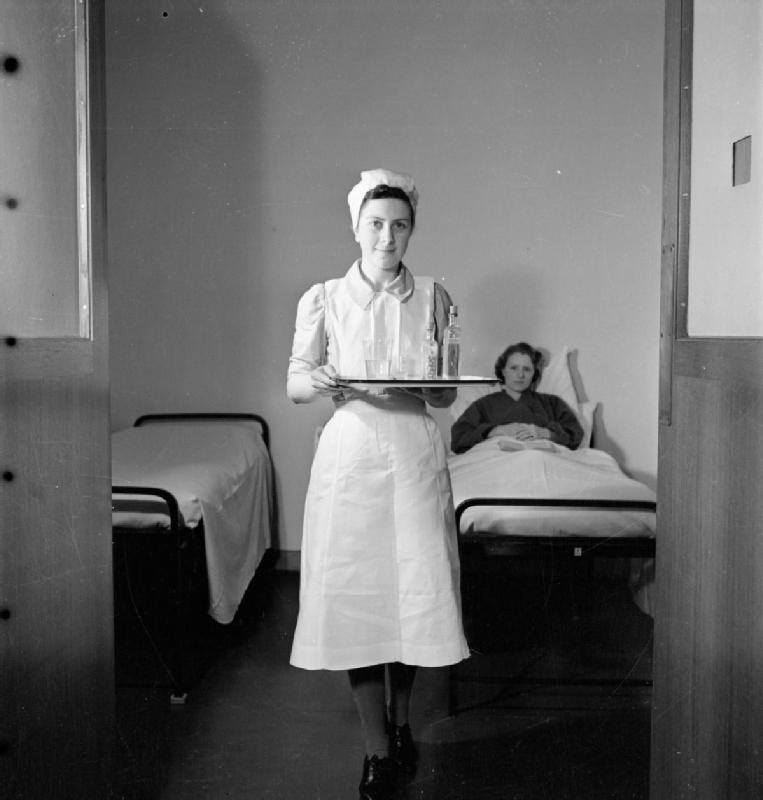Nursing Now And Then: Technology
Thursday, July 21st, 2016 | Nursing
The healthcare industry has evolved and changed constantly over the past 60-70 years; the NHS is almost unrecognisable when compared to its first decade of operating - although the original goal and dream is still there. Patient care is a completely different experience compared to 1950s care; there where far less patients and the technology was far more crude than it is now. Nurse roles have also changed drastically in the past fifty years.
Observational methods have changed greatly; patients were often judged by the nurse’s different senses alone. Sight, sound, smell and touch played a keen role in how the nurses measured a patient’s health. Alongside this, very basic measurement tools were used;
-
Mercury thermometers were used to test patient temperatures; a process that likely took much longer than the digital method used now.
-
Blood sugar levels were measured using a urine sample; nurses and healthcare assistants now use a BM machine, something that can instantly measure blood sugar levels.
-
Blood tests had a two day turn around; many patients were likely to die before their results came back.
There is no denying that the diagnostic ability of modern medicine has improved exceptionally since the 1950s, but at what cost?
The patient turnaround time in hospitals is far quicker now than it has ever been. The automation that technology has gifted us has taken away the personable side of healthcare. Due to the level of demand there is, nurses aren’t able to connect with patients like they used to; many of the jobs nurses used to do now fall on healthcare assistants. So while technology does drastically decrease the turnaround time, it also reduces the amount of contact time each patient receives.
During the 1950s, many of the items were not disposable, nurses had to meticulously clean instruments in order to keep them sterile:
-
Bedpans were made of steel. Nurses would have to clean each one to ensure they were sterile. An individual bedpan would take an average 16 minutes to clean. Bedpans are now disposable, which is not only a massive time-saving measure but also a lot more hygienic.
-
Needles and syringes were not disposable. Each one had to be cleaned at extremely high temperatures to ensure they were sterilised. Disposable needles and syringes are vital in saving time and making drug administration safer.

The dawning of disposable items granted nurses more time, but due to the population increasing, this time ended up being spent on the ever growing turnover of patients coming in. This influx of patients meant that nurses were slowly spending less and less time with patients. Sixty years ago it was standard procedure for two nurses to give a patient a sponge bath that would last well up to an hour. This is unheard of in the modern healthcare industry.
Nurses are now spread thinly across multiple patients, with healthcare assistants often spending more time with individual patients. This is not through choice though, nurses have always had a close relationship with patients, this is why many choose the profession. Unfortunately, nurses are often spread over multiple wards and must constantly use their time on those most in need. There are currently 8.8 nurses for every 1000 people across the United Kingdom, this figure has actually decreased since 2011 when it stodod at 9.5. This shows how the demand for healthcare is slowly growing in line with an aging and constantly increasing population.
While the demand for the NHS has increased, the fear of new technology will always remain. With so many different technological advancements, it’s easy to understand why nurses have apprehensions about their implementation. New technology means re-education, which means even more time away from patients who desperately need care. It’s a double edged sword because there is undoubtedly benefits to technolog; the increased life expectancy is evidence of that. What nurses need to remember though is the fact that they will always be more valuable than technology.
As the great Elbert Hubbard once said:
“One machine can do the work of fifty ordinary men. No machine can do the work of one extraordinary man”
Enjoy nursing content? Check out our top ten tips on how to survive a night shift.











